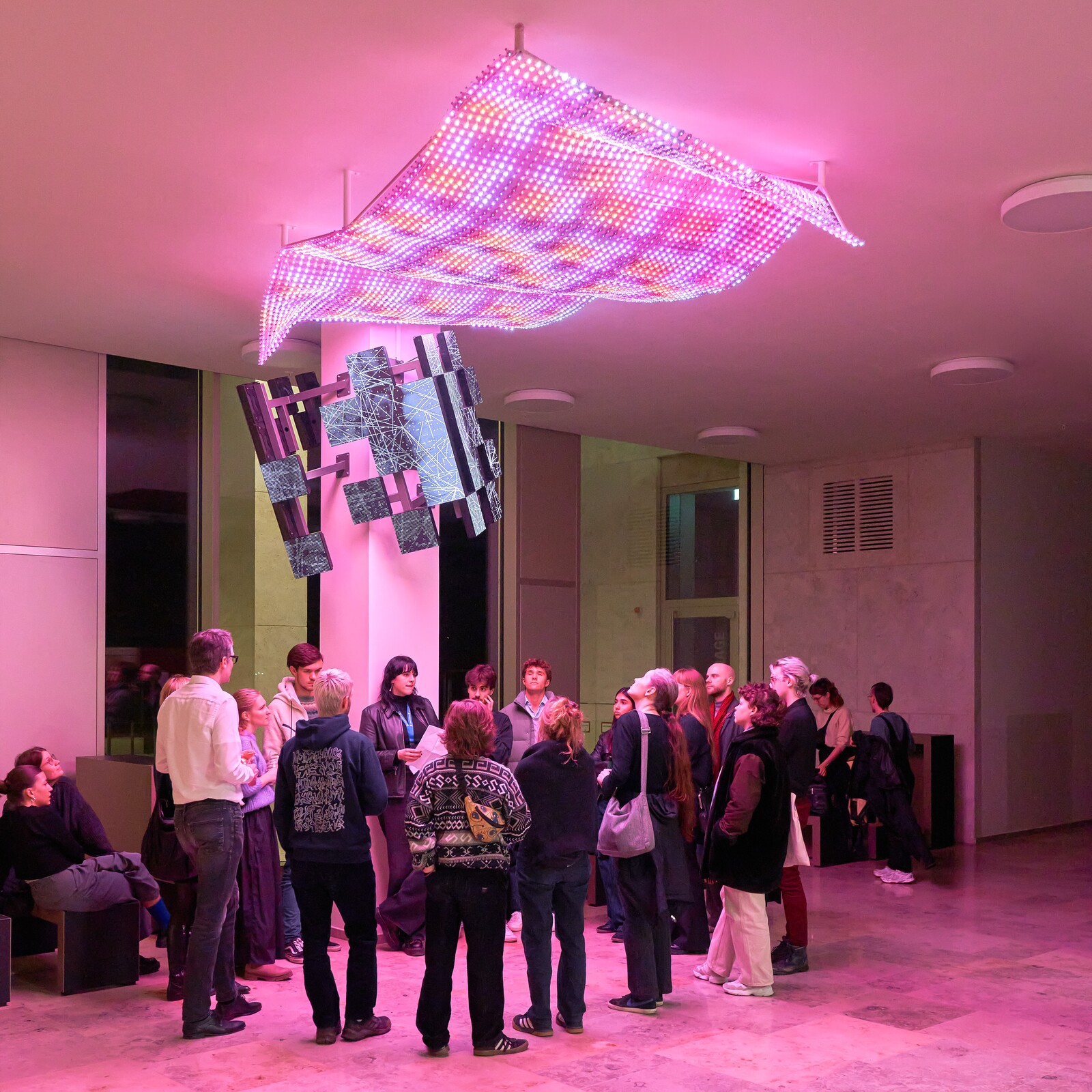Campus Westend, Rostocker Str. 3
60323 Frankfurt am Main
Germany
Call for Applications in Curatorial Studies:
two-year Master of Arts program at Goethe University Frankfurt and Hochschule für Bildende Künste–Städelschule – in cooperation with Städel Museum, Liebieghaus Skulpturensammlung, Museum MMK für Moderne Kunst Frankfurt, Historisches Museum Frankfurt, Weltkulturen Museum and Portikus.
At Goethe University, the following disciplines are involved through institutes and/or subject representatives: Art History, Philosophy, Ethnology, Archaeological Sciences, Art Education and History. The course is part of Goethe University’s Institute of Art History.
The program is characterized by its unique structure, a partnership between university, art academy and Frankfurt’s diverse museum landscape. The exclusive program, limited to 12 to 15 students per year, gives students the opportunity to combine academic learning and scientific research with curatorial questions and professional experience in an environment of intensive exchange. Academia, artistic practice, curating and theoretical-critical reflection are not regarded as separate practices, but as interrelated, shared experiences.
Tuition fees are not charged.
Start: Winter semester 2024/25 (October 14th 2024)
Application deadline: May 31st 2024
Conception:
The main focus of this Master of Arts program is the scholarly examination of the complex tasks of curating and art criticism, with an emphasis on their theoretical and practical application. It is the aim of this program to combine an object-related approach with theoretical expertise. While other programs have primarily focused on contemporary art, here the examination of curating and art criticism includes earlier periods and different fields of cultural studies as well.
In a globalized art world, and in response to developments within contemporary art, the presentation of art and art historical objects has become a complex challenge, which necessitates the consideration of art historical as well as cultural, social, political and philosophical aspects. Museums and other art institutions have to face the task of rephrasing the notion of the public realm. The repercussions apply not only to institutions directly involved with contemporary art. In fact, the shift is as fundamental as to be of concern to the operations of traditional art historical, ethnological and historical collections.
Program description:
The Master’s study program provides prospective curators, exhibition organizers and art critics with a theoretical and practical basis for their future occupation. Already during their Master’s program, students have the opportunity to combine academic expertise with curatorial skills and practical knowledge. The Frankfurt program of study features a unique cooperation of committed university departments, outstanding museums and an internationally renowned academy of fine arts.
Program structure:
During the first year, students are in constant contact with the cooperating museums. University seminars provide an opportunity for the participants to extend their expertise. Furthermore, criteria and categories of art criticism as well as academic principles of art theory and aesthetics will be discussed. A course module on the history of the museum and exhibitions complements the program. A two-month-long internship, preferably resulting in the collaboration on an exhibition project, offers insight into the curatorial departments of a museum or exhibition institution. Fundamental to the second year is the development of the Master’s thesis, and in-depth work on object-related approaches combined with theoretical inquiry.
Curatorial students’ project:
During the second and the third semester, each class creates a curatorial project in cooperation with university lecturers and the museums in Frankfurt. It is the students’ task to develop and realize a project within a given frame.
In addition, the course has its own project space located in the city center of Frankfurt. Here, students can independently explore curatorial exhibition practice and collaborate in various formats with artists, mostly based at Städelschule or HfG Offenbach.
Exams:
The Master’s thesis consists of the theoretical and methodical substantiation of a curatorial and critical project, yet there is no set format. A scholarly text is obligatory in each case. One part of the Master’s thesis may be submitted in a different format, for example an exhibition concept or a documentation of an exhibition.
The degree “Master of Arts” (M.A.) is being jointly awarded by Goethe-University and Städelschule; respective competencies acquired will be certified by a “Diploma supplement”. The Master of Arts Program Curatorial Studies – Theory – History – Criticism creates the opportunity for admission to a subject-specific doctorate. The program’s alumni have so far been able to establish themselves very well in the professional field, in museum and exhibition institutions as well as in universities.
Teaching staff and lecturers:
Staff includes university teachers at Goethe University and Städelschule as well as directors and curators of Städel Museum, Liebieghaus Skulpturensammlung, Museum MMK für Moderne Kunst Frankfurt, Historisches Museum Frankfurt, Weltkulturen Museum and Portikus. Additional experts will be brought in for individual events and projects. The program is taught in German and English. Proficiency in English is expected.
Number of students:
Annual admission of 12 to 15 students ensures a small and intensive research experience in specially arranged seminars and events.
Application requirements:
Bachelor’s or equivalent degree with a minimum of 6 semesters in art history, archaeology, art education, philosophy, ethnology or history. Fine arts graduates may also apply. International Students do need a DSH-1 Certificate.
Applications must be sent in one fold (in one envelope!) by May 31st 2024 (postmark), and include a single-page statement of purpose (SoP), résumé (CV) as well as copies of relevant certificates, to the following address:
Curatorial Studies – Theorie – Geschichte – Kritik, Kunstgeschichtliches Institut der Goethe-Universität, Goethe-Universität Frankfurt am Main, 60629 Frankfurt
Please also send your application (one PDF File!) via email to the following address: kuratierenundkritik [at] kunst.uni-frankfurt.de.
Further information on the program and the application process is available on our website
www.kuratierenundkritik.net
